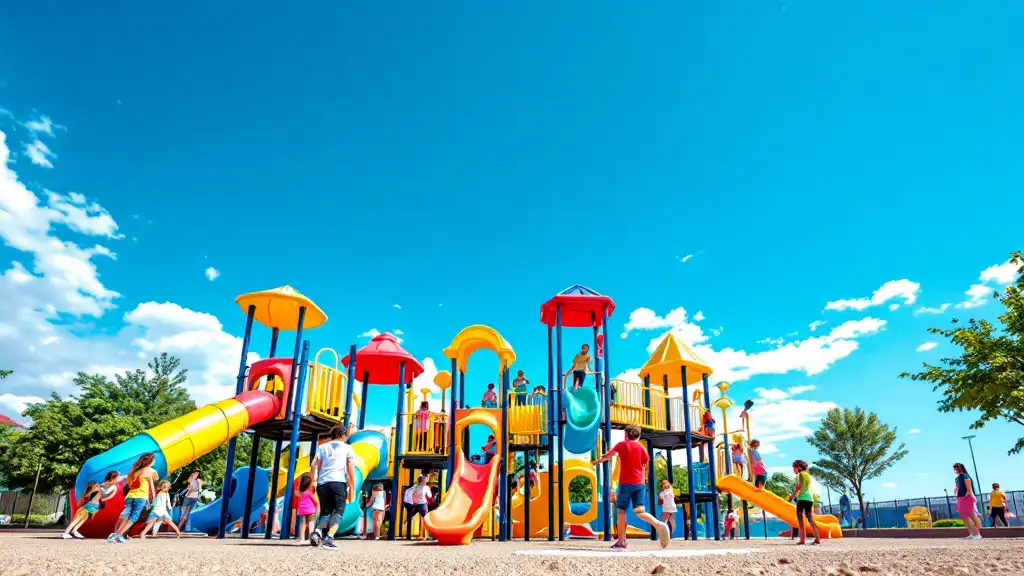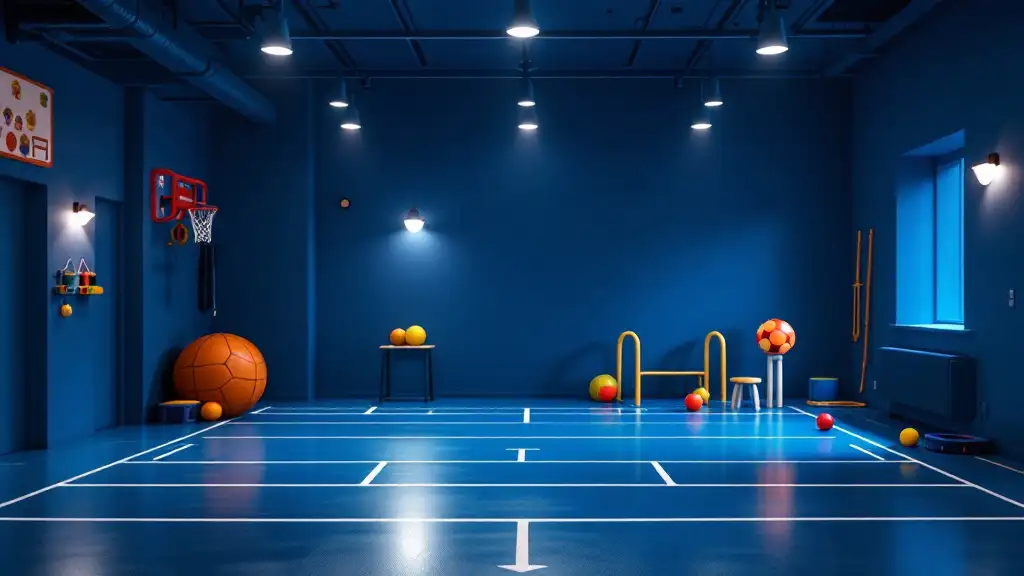
Understanding the Foundations of Self-Confidence
Building self-confidence in adults with disabilities is a vital step towards personal independence, emotional well-being, and social integration. This journey involves recognizing individual strengths, addressing societal influences, and utilizing tailored strategies and supportive environments. By embracing person-first mentalities and promoting inclusive, empowering practices, we can help adults with disabilities foster a positive self-image and achieve their full potential.
The Impact of Society’s Perception on Self-Esteem

How does society's influence and discrimination impact the self-esteem of individuals with disabilities?
Society’s perceptions and discriminatory attitudes can significantly diminish the self-esteem of individuals with disabilities. When societal stereotypes and prejudices prevail, they often lead to feelings of inadequacy, shame, or alienation among affected individuals. Discrimination in various settings—be it at work, school, or in public—can reinforce negative self-views, making individuals doubt their worth or abilities.
However, it is important to recognize that societal influence is not always malicious. Most people are naturally curious about differences, which often stems from a desire to understand rather than judge.
Why is curiosity about disabilities not usually malicious?
Curiosity about disabilities, in many cases, stems from genuine interest or a desire to learn. It is a natural human tendency to be inquisitive, and this curiosity is not necessarily rooted in negative judgment or prejudice. Recognizing this can help individuals with disabilities respond less defensively and foster more open conversations.
How does judgment from others influence how individuals with disabilities perceive themselves?
While judgment from others is a natural aspect of human interaction, it can be difficult for individuals with disabilities to control how they are perceived. Repeated negative judgments or stereotypes can damage self-esteem and confidence. Nonetheless, individuals can manage their response by focusing on their strengths and positive attributes, which can, in turn, influence how others view them.
Fostering a focus on self-awareness and personal growth helps mitigate the impact of external judgments. Building resilience and self-acceptance enables people to maintain a positive self-image despite societal misconceptions.
Strategies to improve self-esteem and confidence in adults with disabilities
Building confidence in adults with disabilities involves several approaches. Practicing self-compassion and engaging in positive self-talk can mitigate feelings of inadequacy. Setting small, achievable goals allows individuals to experience success regularly, boosting their self-level of confidence.
Celebrating small victories, participating in enjoyable activities like art, music, sports, or hobbies, and surrounding oneself with supportive relationships further strengthen self-esteem. Creating an inclusive environment, offering empowerment opportunities, and emphasizing personal strengths play a vital role.
Training in life skills such as using public transportation or managing daily routines promotes independence, further enhancing self-confidence. Additionally, engaging in community roles or volunteering helps individuals see their value and contributions.
How can friends, family, and caregivers support adults with disabilities?
Support networks are crucial. Family members, friends, and caregivers can bolster self-confidence by actively recognizing achievements and offering genuine encouragement. Encouraging participation in social activities, workplace opportunities, and hobbies fosters skills development and independence.
Providing emotional support, listening actively, and promoting self-advocacy empower individuals to express their needs confidently. Establishing accessible environments and offering education, including the use of technology, supports ongoing growth.
Creating a caring atmosphere reaffirms their sense of worth, helps challenge societal stereotypes, and celebrates their unique abilities.
What therapy approaches effectively address low self-confidence?
For adults struggling with self-confidence, evidence-based therapies prove helpful. Cognitive Behavioral Therapy (CBT) is widely recognized for its effectiveness in challenging negative thought patterns and encouraging more positive behaviors.
Acceptance and Commitment Therapy (ACT) promotes emotional acceptance and mindset shifts, helping individuals reframe their experiences.
Compassion-Focused Therapy focuses on cultivating self-compassion, resilience, and emotional warmth.
Narrative therapy helps individuals reshape their personal stories, emphasizing their strengths and potential.
Group therapy also offers social support, allowing individuals to connect with others facing similar challenges, which builds community and shared confidence.
By combining these strategies—focusing on societal influences, fostering understanding, promoting empowerment, and providing professional support—self-esteem and confidence among individuals with disabilities can be markedly improved.
| Aspect | Approach | Additional Details |
|---|---|---|
| Societal influences | Reduce discrimination | Education campaigns, anti-stigma programs |
| Curiosity about disabilities | Foster understanding | Open dialogues, awareness activities |
| External judgments | Manage responses | Focus on strengths, resilience training |
| Self-esteem strategies | Build confidence | Goal-setting, celebrating achievements |
| Support systems | Community & family | Recognition, encouragement, accessible environments |
| Therapeutic options | CBT, ACT, Narrative | Personalized therapy plans |
Focusing on these areas creates a more inclusive society where individuals with disabilities feel valued, confident, and capable of leading fulfilling lives.
The Role of Setting and Celebrating Personal Achievements

What strategies can improve self-esteem and confidence in adults with disabilities?
Practicing self-compassion and engaging in positive self-talk are foundational methods for improving self-esteem. Setting small, achievable goals helps individuals experience success regularly, which reinforces a positive self-image. Celebrating these small victories, no matter how minor they seem, boosts morale and encourages ongoing progress. Engaging in activities that bring joy and satisfaction fosters emotional well-being. Additionally, surrounding oneself with supportive and understanding people creates a nurturing environment that promotes confidence. These strategies together help adults with disabilities see their potential and worth.
How can we build self-confidence in adults with disabilities?
Recognizing each person’s unique abilities is crucial. Rather than focusing on limitations, emphasizing what they can do helps individuals realize their strengths and talents. Celebrating these qualities boosts self-efficacy and reinforces positive thinking. Supporting participation in meaningful activities and creating supportive environments further develop confidence. Encouraging independence, such as handling daily chores and decision-making tasks, allows adults to experience autonomy and mastery—key components of self-confidence.
How can friends, family, and caregivers support adults with disabilities in building self-confidence?
Supportive roles are vital in fostering self-esteem. Recognizing and celebrating each person’s strengths and accomplishments helps instill pride and a sense of self-worth. Encouraging involvement in community activities, hobbies, and social interactions expands opportunities for validation and skill-building. Providing emotional support, active listening, and promoting self-advocacy empower individuals to express their needs and desires confidently. Creating safe, accessible environments and offering education—including the use of supportive technologies—aid in skill development and independence. Building trustworthy support networks and highlighting personal talents help individuals feel valued, fostering a positive self-view.
What is an effective therapy for adults with low self-confidence?
Cognitive Behavioral Therapy (CBT) stands out as an effective intervention. It helps individuals recognize and challenge negative thought patterns, replacing them with healthier, empowering beliefs. Acceptance and Commitment Therapy (ACT) encourages embracing emotions and reframing thoughts to foster resilience. Compassion-Focused Therapy promotes self-compassion and emotional resilience, combating internal negativity. Narrative therapy enables individuals to reshape their personal stories, highlight strengths, and foster a renewed sense of confidence. Group therapy also plays a crucial role by providing social support and shared experiences, which continue to reinforce positive self-perception.
How do Setting realistic and small, achievable goals, celebrating victories, and encouraging independence contribute to confidence?
Setting realistic goals provides a clear roadmap and helps individuals measure progress, reducing feelings of frustration or inadequacy. Small, achievable goals ensure consistent success, boosting motivation and resilience. Celebrating victories, even tiny ones, reinforces a sense of accomplishment and encourages continued effort, creating a positive feedback loop. Encouraging independence in daily tasks—such as managing personal care, navigating transportation, or making decisions—empowers adults with disabilities. This independence fosters a sense of control and self-reliance, which are fundamental for building long-term confidence.
| Strategy | Effect | Additional Support |
|---|---|---|
| Setting small, achievable goals | Builds confidence through regular success | Repetition and routine reinforce skills |
| Celebrating victories | Boosts morale and encourages persistence | Personal acknowledgment and rewards |
| Promoting independence | Fosters self-reliance and decision-making skills | Access to adaptive tools and education |
These approaches collectively help cultivate a mindset of growth and resilience. By consistently recognizing achievements and supporting autonomy, adults with disabilities can develop stronger self-esteem and a confident outlook, enabling them to participate more fully in their communities and reach personal aspirations.
Leveraging Support Networks and Community Engagement

Why are support networks like family, friends, educators, and organizations important?
Support systems are essential for fostering confidence and self-esteem in adults with disabilities. Family members, friends, educators, and community organizations provide emotional encouragement, practical assistance, and opportunities for social participation. These networks help individuals feel valued, understood, and accepted.
They serve as a foundation for healthy social interactions and help individuals navigate daily challenges, while reinforcing their sense of belonging and purpose. By recognizing and celebrating each person's unique abilities, these support groups promote positive self-identity and motivate ongoing personal growth.
How does community involvement help build confidence?
Active participation in community activities offers numerous confidence-boosting benefits. Whether engaging in local events, sports, or hobby groups, individuals with disabilities gain opportunities to develop social skills, discover new talents, and feel a sense of contribution. Volunteering and employment are also powerful avenues for personal validation and skill development.
Such engagement reinforces feelings of independence and helps break down societal barriers and stereotypes. When individuals see their role as valuable members of their community, their self-esteem naturally improves.
What role do mentorship and peer support programs play?
Mentorship programs connect individuals with experienced guides who model confidence, problem-solving, and leadership. These relationships enable personal growth by providing encouragement, constructive feedback, and guidance tailored to individual needs.
Peer support groups create a safe environment where adults with disabilities can share experiences, exchange strategies for overcoming challenges, and celebrate successes. These programs foster mutual understanding and camaraderie, which are vital for emotional resilience and confidence-building.
How does participation in work, volunteering, and social groups influence self-esteem?
Engaging in paid work or volunteering helps individuals develop a sense of purpose and achievement. Such activities demonstrate tangible contributions to society and reinforce feelings of independence.
Joining social groups or hobby clubs expands social networks, improves communication skills, and nurtures friendships. Feeling accepted and appreciated in these settings enhances self-worth.
| Area of Engagement | Benefits | Additional Details |
|---|---|---|
| Family and Friends | Emotional support, encouragement | Celebrate achievements, listen actively |
| Community Activities | Skill development, social inclusion | Participation in local events, sports, arts |
| Mentorship & Peer Groups | Confidence, role models | Sharing experiences, mutual support |
| Work & Volunteering | Independence, purpose | Real-world skill application, societal contribution |
Practical strategies to enhance self-esteem through social engagement
- Recognize and celebrate individual talents and efforts regularly.
- Encourage participation in meaningful activities aligned with personal interests.
- Foster an environment of respect and acceptance, emphasizing individual strengths.
- Support decision-making and independence in daily and community roles.
- Use adaptive technologies and tailored programs, like those at Pathways, to facilitate skill development and confidence.
These approaches, combined with supportive relationships and active community involvement, significantly contribute to psychological well-being and a sense of empowerment among adults with disabilities.
Encouraging Self-Expression and Inclusive Activities
 Self-expression is a vital tool for building confidence and self-esteem among adults with disabilities. Engaging in creative outlets such as art, music, writing, or other forms of personal expression allows individuals to explore their emotions, highlight their talents, and communicate their unique perspectives. These activities not only provide enjoyment but also serve as powerful means of self-discovery and emotional healing.
Self-expression is a vital tool for building confidence and self-esteem among adults with disabilities. Engaging in creative outlets such as art, music, writing, or other forms of personal expression allows individuals to explore their emotions, highlight their talents, and communicate their unique perspectives. These activities not only provide enjoyment but also serve as powerful means of self-discovery and emotional healing.
In addition to expressive arts, inclusive education and community programs play a significant role in fostering self-confidence. Participating in community activities, workshops, or group classes designed to accommodate diverse abilities encourages social interaction and cooperation. Such involvement creates a sense of belonging and helps break down societal barriers.
Participation in sports, hobbies, and physical activity further enhances feelings of competence and independence. Activities like adaptive sports, dance classes, gardening, or volunteering give individuals opportunities to develop new skills, achieve goals, and experience success. These experiences reinforce a positive self-image and motivate continued growth.
Building social skills and emotional intelligence is essential in empowering adults with disabilities to navigate relationships and social settings confidently. Programs that focus on communication techniques, emotional awareness, and problem-solving strategies enable individuals to express themselves effectively and build meaningful connections.
Practicing self-compassion and setting achievable goals significantly improve self-esteem and confidence. Celebrating small victories, engaging in activities that bring joy, and surrounding oneself with supportive people are practical steps to foster a resilient and positive self-view.
Supportive environments—whether at home, in educational settings, or within community groups—are fundamental. These environments should promote respect, accessibility, and encouragement, helping individuals recognize and develop their strengths.
Moreover, technology plays a pivotal role in enhancing participation. Devices like tablets, communication aids, and virtual reality tools support skills development and self-expression, making activities more engaging and accessible.
Fostering opportunities for social interaction, whether through community events, group hobbies, or mentorship programs, creates platforms for shared experiences and personal growth. These interactions enhance social skills, build confidence, and facilitate the development of supportive networks.
Overall, a combination of expressive outlets, inclusive participation, skill-building activities, and a focus on emotional well-being creates a nurturing environment essential for empowering adults with disabilities. Recognizing and celebrating their unique abilities and talents reinforces their sense of value, purpose, and self-worth.
Fostering a Community of Confidence and Independence
Building self-confidence among adults with disabilities is a multi-faceted process that involves personal effort, supportive environments, targeted therapies, and community engagement. Recognizing individual strengths, celebrating achievements, and promoting inclusive, empowering activities lay the foundation for growth. Support networks—comprising family, friends, educators, and organizations—are essential to nurture resilience and independence. By embracing a comprehensive approach that combines emotional, social, educational, and practical strategies, we can empower adults with disabilities to thrive, participate fully in society, and lead fulfilling lives. Confidence is not just an individual goal but a collective journey towards understanding, acceptance, and empowerment.
References
- Disability and Self Confidence: How to Build Self Esteem
- Six Ways to Build Confidence with a Disability
- Empowering Special Needs Individuals: Building Confidence ...
- 21 tips that promote independence in adults with disability
- 5 Ways Pathways Helps Build Confidence in Adults with ...
- Basic Life Skills for Adults with Disabilities - UDS
- Boosting Self-Advocacy Skills in People with Disabilities
- Renewing Confidence While Living With A Disability












